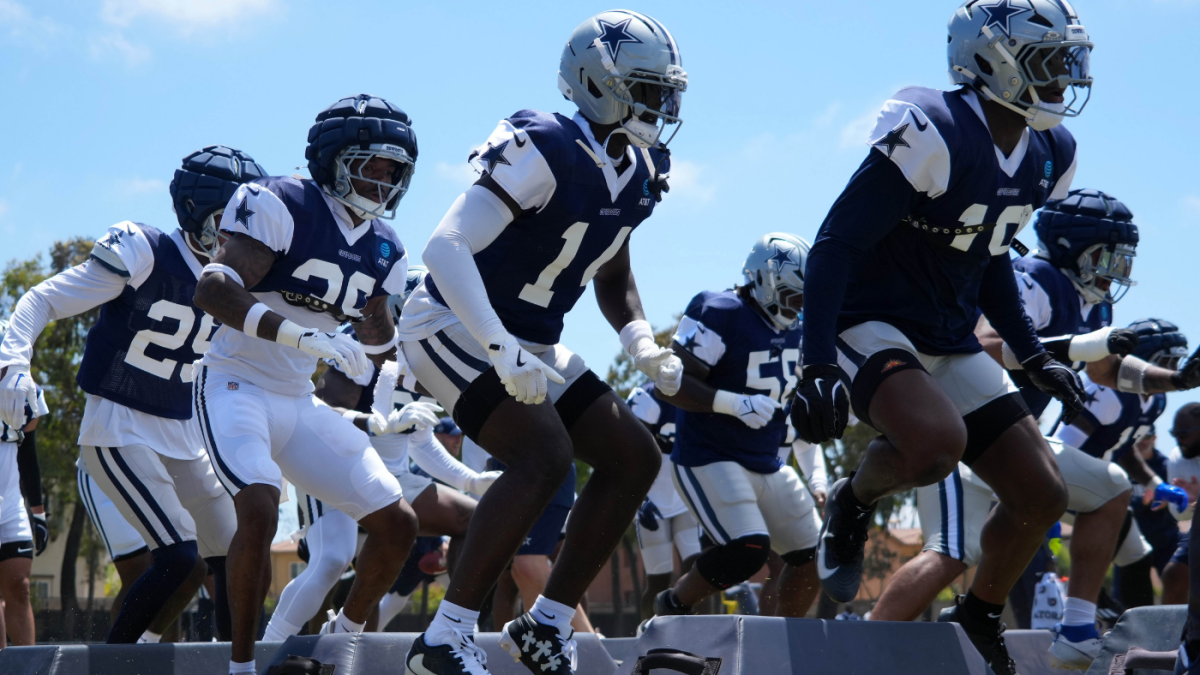The Schottenheimer Effect: Discipline and Dynamics in the Cowboys’ Training Camp
A Crucible of Competition and Conflict
Training camp is a microcosm of the NFL season, a high-stakes environment where raw talent is refined into a cohesive unit. For the Dallas Cowboys, this year’s camp in Oxnard, California, has been a vivid display of both potential and tension. The arrival of new offensive coordinator Brian Schottenheimer has brought a firm hand to the table, sparking a wave of disciplinary actions that have left the team—and its fans—watching closely. The early days of camp have been marked by heated exchanges, with Schottenheimer implementing old-school measures to curb the escalating intensity. This report delves into the incidents, the response, and the potential impact on the Cowboys’ trajectory.
The Oxnard Tensions: A Pressure Cooker
The Cowboys’ training camp has been anything but serene. Reports indicate that multiple fights erupted during practices, particularly in the competitive red-zone drills. These altercations were not mere skirmishes but full-fledged confrontations that required coaches and teammates to physically separate the involved players. The frequency and intensity of these incidents crossed a line, prompting Schottenheimer to take decisive action. The underlying dynamics of these conflicts are multifaceted, rooted in the high-stakes nature of training camp, where competition for starting positions, personal pride, and the sheer physical and mental demands of practice can all contribute to heightened emotions.
Schottenheimer’s Old-School Approach
In response to the escalating aggression, Schottenheimer halted practice and ordered the entire team, including coaches, to run sprints. This disciplinary action is reminiscent of traditional coaching styles, a stark contrast to the often player-friendly environments prevalent in modern football. By enforcing this measure, Schottenheimer sent a clear message: accountability and discipline are non-negotiable. His decision to eject a player from practice for throwing a punch further underscored his commitment to maintaining order. While some might view this approach as heavy-handed, it is evident that Schottenheimer felt it necessary to regain control and refocus the team’s energy.
Player Reactions: A Mixed Bag
Interestingly, Schottenheimer’s disciplinary actions have garnered mixed reactions from the team. Some players have praised his firm hand, recognizing the need for maintaining order and preventing the escalation of conflicts. This support suggests that players understand the importance of discipline in achieving team goals. However, there is also a risk that some players, particularly veterans accustomed to more autonomy, may feel demoralized or resentful. Public punishments can be demoralizing, and if players feel treated unfairly, it could lead to disengagement and a decline in performance. Balancing discipline with empathy and understanding will be crucial for Schottenheimer moving forward.
The Broader Context: More Than Just Fights
The fights during training camp are symptoms of deeper dynamics within the team. Training camp is designed to push players to their limits, both physically and mentally, in preparation for the grueling demands of the regular season. The Cowboys are under immense pressure to perform well this season, given their history and fanbase expectations. This pressure can intensify the competitive atmosphere and lead to friction among players. Addressing these underlying issues will be essential for Schottenheimer to foster a positive team environment.
The Potential Impact: Unity or Resentment?
The long-term impact of Schottenheimer’s actions remains to be seen. On one hand, his decisive intervention could foster a stronger sense of unity and discipline within the team. By holding everyone accountable, he emphasizes that individual actions have consequences and that team success depends on collective responsibility. This could lead to improved communication, mutual respect, and a greater commitment to shared goals. On the other hand, there is a risk that Schottenheimer’s approach could breed resentment among some players. Public punishments can be demoralizing, and if players feel that their concerns are not being heard, it could lead to disengagement and a decline in performance.
The Road Ahead: Discipline and Dialogue
As the training camp progresses, it will be essential for Schottenheimer to continue to address the underlying causes of the conflicts. This could involve facilitating open communication between players, providing opportunities for conflict resolution, and reinforcing the importance of sportsmanship and respect. Furthermore, he needs to clearly articulate his expectations for player behavior and consistently enforce those expectations, demonstrating that discipline is not arbitrary but rather a fundamental aspect of the team’s culture.
Beyond Punishment: Building a Culture of Respect
Ultimately, the success of the Cowboys this season will depend not only on their physical talent but also on their ability to work together effectively as a team. While Schottenheimer’s initial response to the fights was necessary to regain control, it is only the first step in building a sustainable culture of discipline and respect. By fostering open communication, promoting mutual understanding, and reinforcing the importance of collective responsibility, Schottenheimer can help the Cowboys channel their competitive energy in a positive direction and achieve their full potential. The road ahead is challenging, but with the right approach, the Cowboys can emerge from training camp stronger and more united than ever.











